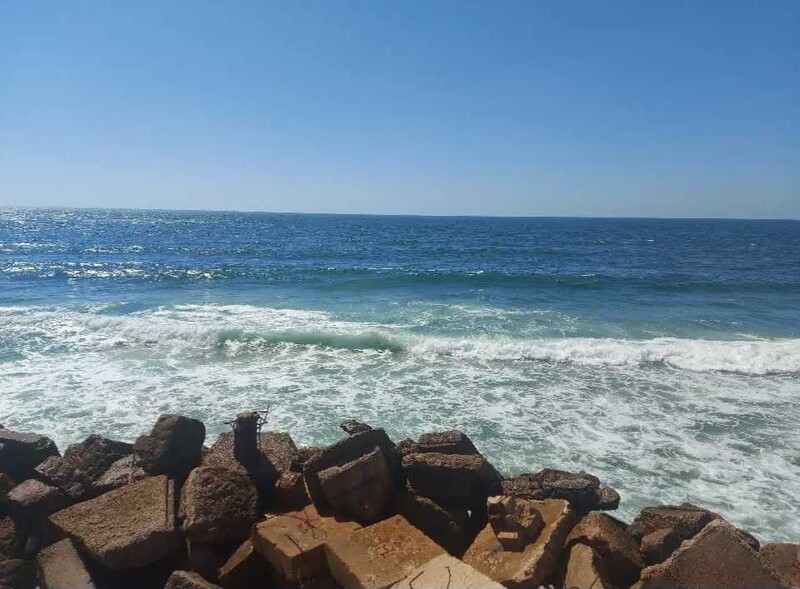The Electronic Intifada 24 October 2024

A Palestinian family harvests olives in Rafah, southern Gaza Strip, in early October 2020.
ActiveStillsMy dad tells me that when I was born I screamed at the top of my lungs in the hospital room in Khan Younis.
It was April 2003 and he had driven my mother all the way from our home in Rafah to Khan Younis at 2 am, with occupation soldiers shooting haphazardly near the hospital. The occupation soldiers would often climb onto roofs and fire at random to terrorize us.
Still, my screams in that hospital room were louder than those soldiers’ guns.
In 2005, when I was 2 years old, Ariel Sharon withdrew from Gaza and soon after we were all suffocating under the occupation’s siege.
My parents noticed that I was growing and learning quite fast compared to my peers; so they enrolled me in school a year early.
I was 5 when I first went to school and heard an Israeli bombardment. We were sitting on our classroom benches when a teacher rushed in, screaming: “Go home! Go home!” I remember my confusion as we all rushed toward the buses, seeing the terror in people’s eyes.
Another student, a young boy, fell down the stairs and stained them with blood.
That winter of 2008, I remember the terror I felt whenever an Israeli explosion shook our building. We lived on the fourth floor; so the explosions would light up the rooms.
During the day, we laughed and played as kids do. But the nighttime was different, scarier. My entire family started to sleep in the basement, the logic being that if we die, we die together. That way no one is left alone to mourn the others.
I survived the Israeli onslaughts of 2012, 2014, 2018, 2021 and 2022. So far, I have also survived the ongoing 2023 genocide.
It all feels like a nightmare. Unreal.
Our last olive harvest

A view of the beach in Rafah in 2024.
In October 2023, more than a year ago, Israel cut off all sources of electricity and internet. I collected Baba’s old Russian-language medicine books to try and learn Russian to pass the time – to try and keep busy until we went back to school.
At that time, I actually assumed that we would be going back to school.
My grandparents were not refugees of the Nakba. Both my dad’s and my mother’s parents are originally from Rafah.
We are landowners. Seido Hamed, my grandpa, lived close to the Philadelphi corridor on the border with Egypt. He had huge orange orchards, and every harvest he would distribute oranges to the entire neighborhood.
These were the same orchards the Israeli army burned down when they first invaded the city in May 2024.
Jeddo Marzouq, my other grandpa, was a well-known merchant. He had dozens of tales from the days when he roamed Palestine – and particularly Jaffa – freely. He liked to brag about it. We inherited those tales and also the yearning to see the Palestine that he had seen.
During the so-called humanitarian pause in November 2023, we harvested the olives from the Rafah orchard. But it was too late. The harvest is late September or early October, and the olive oil tasted bitter.
Months passed and brought only more terror and bitterness.
Facing Israel’s butchery alone
A few months before the genocide we celebrated my sister’s high-school test results. I was preparing a graduation speech, as I was confident that I would be among the top students in my own university graduating class.
In March 2024, since Israel had destroyed all of Gaza’s universities, I applied to schools outside Gaza. I applied even though I was not sure whether I would make it out of this slaughterhouse alive.
Then, one hot day in April 2024, just after my 21st birthday and Eid, I was stretched out on the floor watching the news when a bomb exploded nearby. Baba was working at the hospital. So there was no one to calm us down as our house filled with smoke, ash and broken glass.
This near-death experience was what finally forced us to leave – even though none of us were sure that this was the right move.
When I took my first survivor’s breath in Sinai I was shocked by how spacious the world is. You don’t realize that you are imprisoned until you are outside. We worked so hard to make Gaza beautiful that we didn’t know we were actually in a cage.
I was shocked at the normality of life in Egypt, that the entire planet had not been burned down – just Gaza. It was strange to realize that the world was watching us from the other side of the TV screen. The world sees us at our most vulnerable – and yet leaves us to face Israel’s butchery alone.
In Cairo, I ache when I remember what we have lost, what Israel has taken away. I have never felt more alien to a place. I am so far away and I do not belong anywhere but Gaza.
I spend most of my meaningless days praying. I pray to belong somewhere, to forever belong to Gaza.
Alia Khaled Madi is a writer from Gaza.



